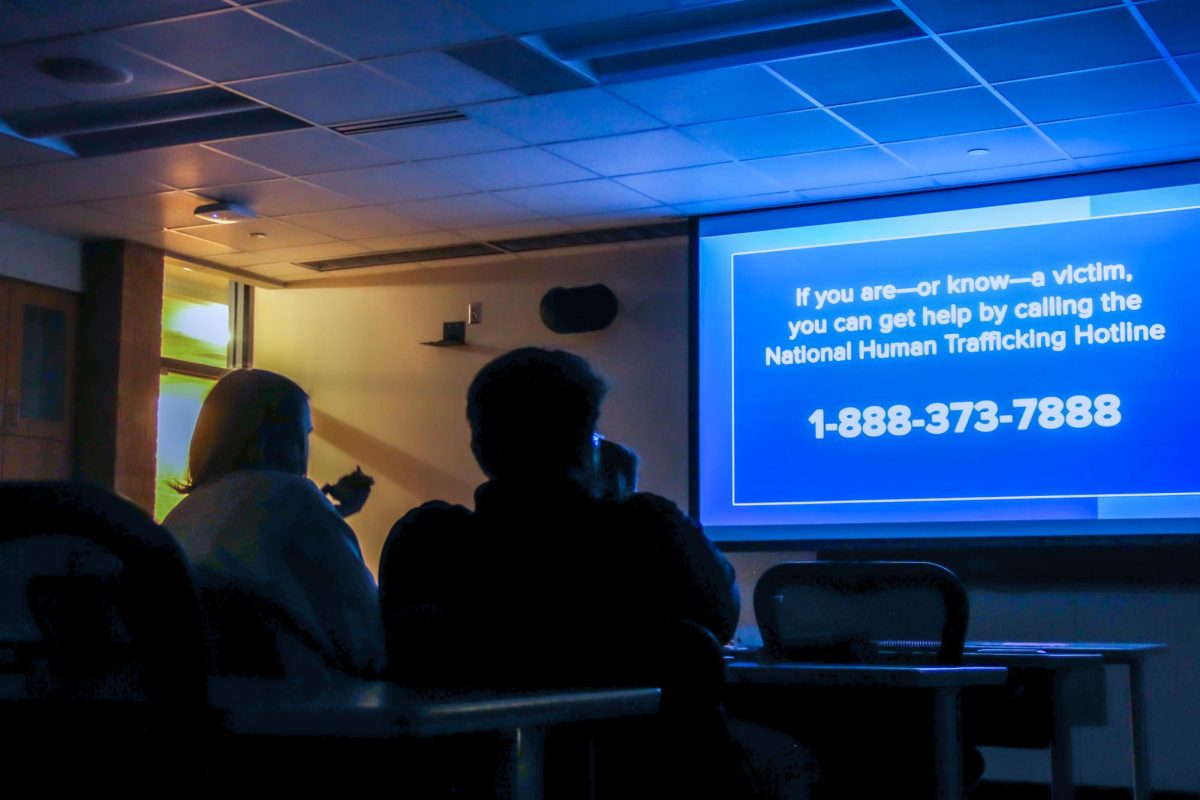By Anthony Thompson/reporter
South students learned that repeated abuse does not have to happen during How to Prevent Relationship Abuse March 28.
“All recurrences of relationship abuse are preventable,” counselor Sandra Johnson said.
The first time someone experiences abuse should be the last time, she said.
Some warning signs or red flags for relationship violence include fearing one’s partner and feeling that one has to walk on eggshells when around the partner, Johnson said.
“If you have feelings of self-loathing, helplessness and desperation or feel like your partner tries to control you, then you might be in an abusive relationship,” she said.
The Texas Council of Domestic Violence, Johnson said, has reported that approximately one in three women in the state will experience relationship violence. In these cases, 90-95 percent of domestic violence victims are women and as many as 95 percent of domestic violence perpetrators are men. However, men can be victims, and women can be perpetrators, she said.
Seventy-six percent of women who report having been physically assaulted or raped were victimized by a current or former husband or partner, Johnson said. Only 14 percent of physical assaults against women are committed by strangers, she said.
“There are studies that use a research tool called the Conflict Tactics Scale that shows a different light in the study,” she said.
These studies show that women are more likely to use a weapon to escalate violence over men, Johnson said.
“Violence itself in its own entity does not discriminate, not by gender, sexual orientation or by cultural differences,” she said.
The key to preventing relationship violence is to pay attention to the warning signs, Johnson said. She suggested asking questions such as “Are you nervous or scared of disagreeing with your partner? Do you feel pressured by your partner when it comes to sex? Do you try to control your behavior so you don’t make your partner angry?” People who answer yes to any of these are at risk for relationship violence, she said.
Even though physical violence is most noticeable, there are fewer reported cases of relationship violence. The more common case of relationship violence is verbal and emotional abuse, like insulting, accusing, humiliating and criticizing.
The type of abuse that’s even more prevalent among TCC students, Johnson said, is the form of abuse not known to many people — academic abuse. This form of abuse keeps students from studying or working on a paper and is a way of keeping students from achieving their dreams or goals.
Johnson called sexual abuse the most heinous abuse of all because it takes the right to choose from the abused.
If students are experiencing any of the signs of relationship abuse, Johnson said they should seek help by contacting friends who are more often there when the abuse happens.
Students can also seek help by contacting a TCC counselor, campus police, a domestic center or the National Domestic Violence Hotline at 800-799-SAFE.
“Our doors are always open, and it’s completely confidential,” she said. “You do not deserve to be abused. Create a safety plan or call someone to talk about your relationship.”

























